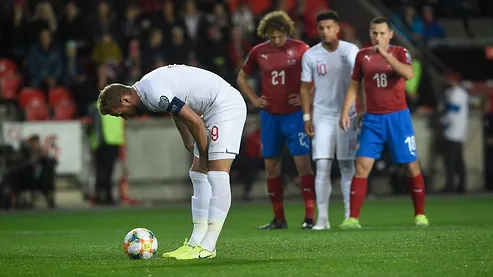By: Melody Dou
Penalty kicks are extremely important in soccer. Almost half of the World Cup games were won through penalty shootouts. The last time a women’s World Cup didn’t include a penalty shootout was in 2007, and the last time a men’s World Cup didn’t have a penalty shootout was back in 1978.
According to The Washington Post, “a penalty kick takes place either when a foul is called in the penalty box or a knockout game ends in a tie and goes into overtime.”
“It looks like a simple duel between the goalkeeper and the kicker, but actually, it’s a really complex environment,” said Rafael Monteiro, a graduate student of rehabilitation and functional performance at the University of São Paulo.
The task is extremely difficult for the goalkeeper. They need to defend a 24 feet wide and 8 feet tall goal from a fast traveling kick moving, on average, 70 mph. Because the kick happens at 12 feet away from the goal, the ball takes around 400 milliseconds to reach the goal.
On average, humans have a visual reaction time of around 200 milliseconds, and the diving movement to save the ball can take up to 500 milliseconds.
Although goalies have faster reaction times than average humans, “It’s very difficult to train and improve the reaction time in high-level goalkeepers,” said Paulo Santiago, an associate professor of biomechanics at the University of São Paulo.
Therefore, goalkeepers have to anticipate the kick.
In an analysis including 330 penalty kicks, professional goalkeepers dove 220 milliseconds before the kicker made contact with the ball. Another experiment showed that goalkeepers would mostly focus on cues given from the torso and legs of the kicker to predict the direction of the ball.
The longer a goalkeeper waits, the more information they can collect, but they have less time to dive. The less a goalkeeper waits, the more time they have to dive, but they might not collect enough information, risking a slow Panenka from the kicker, meaning that they kick the ball slowly over the goalkeeper.
Penalty kicks also include kickers.
“The best strategy for one depends on what the others do. So it’s a classic example of game theory in action,” said Robbie Wilson, a professor of motor performance at the University of Queensland.
There is a trade-off for kickers as well. If they shoot faster, the goalie will have less reaction time, but the accuracy of the ball would drop. If they shoot slower, the ball would be more accurate, but this gives more time for the goalie to save the ball.
Kickers can also exaggerate their movements to deceive the goalkeeper and make them dive the wrong way, but the “deception has huge consequences to how hard you can kick it and the accuracy you can kick it,” said Wilson.
The kicker can also wait for the goalkeeper to dive first before they make a slow Panenka down a now open net. However, this is extremely risky.
Penalty kicks are extremely difficult for goalies, and they aren’t expected to save the ball. Therefore, the kicker gets nearly all the pressure.
According to The Washington Post, “the biggest problem for penalty takers is anxiety, Wood said.”
Anxiety can affect where kickers aim. According to a study, in low pressure conditions with no goalkeepers or money on the line most kickers looked where they kicked the ball. However, in high pressure conditions with a goalkeeper, kickers looked at the goalkeeper instead because they are the “threat.” Therefore, the ball would go towards the goalkeeper.
There are other ways for goalkeepers to distract kickers. According to more studies, if a goalie stood slightly closer to one side of the goal the ball would most likely go towards the other half. Also, goalies can wave their arms around, creating a distraction so kickers kick the ball towards the goalie.
A kicker could do breathing exercises such as the “sigh breath” to help with their anxiety.
“They basically just keep your mind focused on the things that you should be focusing on rather than being distracted by things in your head,” said Greg Wood, a sport and exercise psychologist at Manchester Metropolitan University Institute of Sport.
Overall, it’s important to keep calm under the high stress levels of a penalty shootout for both kickers and goalies.
Sources:
https://www.washingtonpost.com/wellness/2023/08/05/world-cup-penalty-kicks-psychology-brain/











